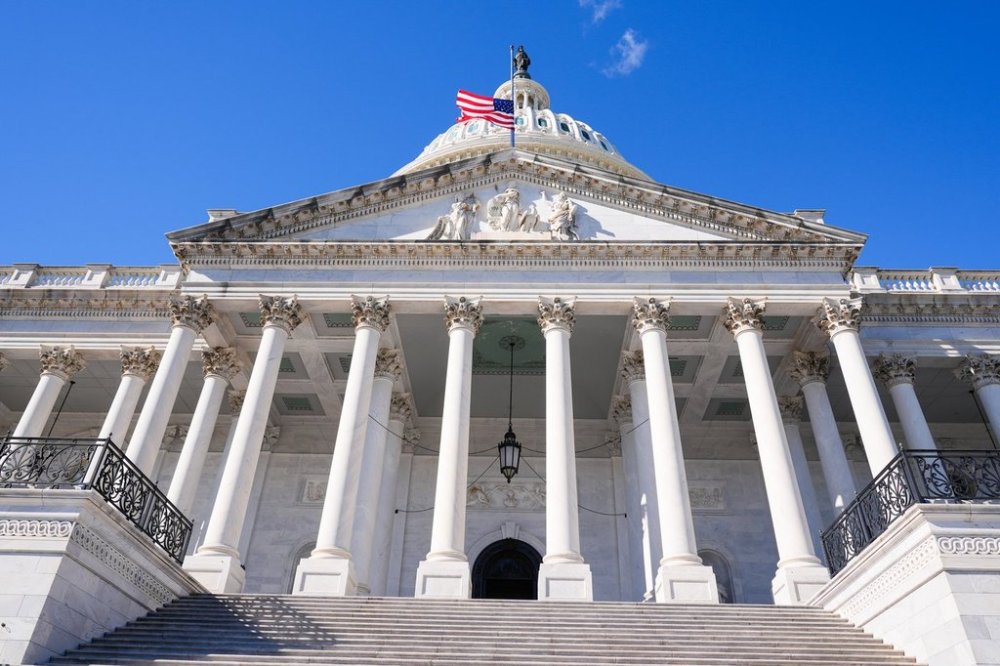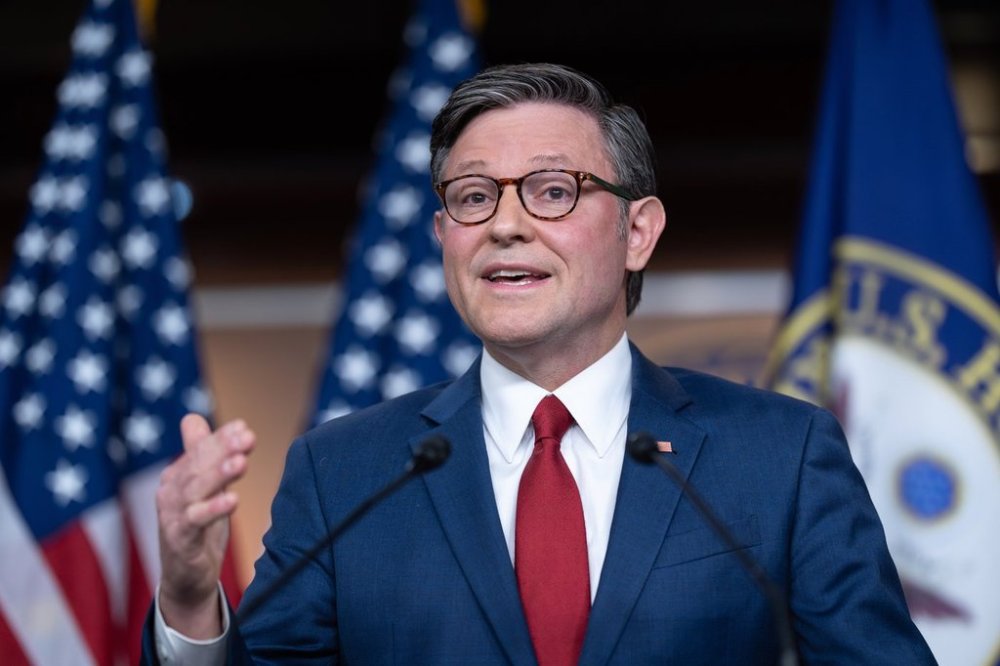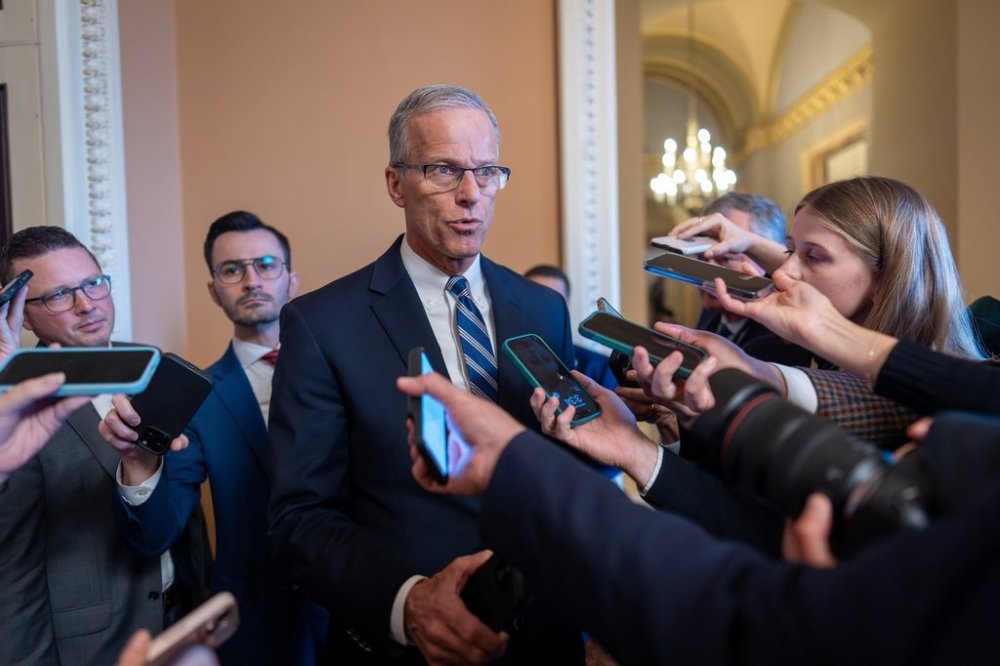Senate nears passage of bill to reopen government, House to vote next
Advertisement
Read this article for free:
or
Already have an account? Log in here »
To continue reading, please subscribe:
Monthly Digital Subscription
$0 for the first 4 weeks*
- Enjoy unlimited reading on winnipegfreepress.com
- Read the E-Edition, our digital replica newspaper
- Access News Break, our award-winning app
- Play interactive puzzles
*No charge for 4 weeks then price increases to the regular rate of $19.00 plus GST every four weeks. Offer available to new and qualified returning subscribers only. Cancel any time.
Monthly Digital Subscription
$4.75/week*
- Enjoy unlimited reading on winnipegfreepress.com
- Read the E-Edition, our digital replica newspaper
- Access News Break, our award-winning app
- Play interactive puzzles
*Billed as $19 plus GST every four weeks. Cancel any time.
To continue reading, please subscribe:
Add Free Press access to your Brandon Sun subscription for only an additional
$1 for the first 4 weeks*
*Your next subscription payment will increase by $1.00 and you will be charged $16.99 plus GST for four weeks. After four weeks, your payment will increase to $23.99 plus GST every four weeks.
Read unlimited articles for free today:
or
Already have an account? Log in here »
WASHINGTON (AP) — The Senate began its final votes Monday evening on legislation to reopen the government, bringing the longest shutdown in history closer to an end after a small group of Democrats struck a deal with Republicans.
The shutdown could last a few more days as members of the House, which has been on recess since mid-September, return to Washington to vote on the legislation. President Donald Trump has signaled support for the bill, saying Monday that “we’re going to be opening up our country very quickly.”
Senators began debate on the bill just past nightfall. Senate Majority Leader John Thune set up a series of procedural votes and said he hoped final passage would take “hours not days.”

Speaker Mike Johnson urged lawmakers to start returning to Washington “right now” given shutdown-related travel delays, but he said he would issue an official notice for the House’s return once the Senate passes the legislation.
“We have to do this as quickly as possible,” Johnson said at a news conference. He has kept the House out of session since mid-September, when the House passed a bill to continue government funding.
After weeks of negotiations, the moderate Senate Democrats agreed to reopen the government without a guaranteed extension of health care subsidies, angering many in their caucus who have demanded that Republicans negotiate with them on the Affordable Care Act tax credits that expire Jan. 1. Thune, R-S.D., promised a mid-December vote on the subsidies, but there was no guarantee of success.
In a possible preview, the Senate voted 47-53 along party lines Monday not to extend the subsidies for a year. Majority Republicans allowed the vote as part of a separate deal with Democrats to speed up votes and send the legislation to the House.
Stalemate ends after five Democrats switch votes
A group of three former governors — New Hampshire Sen. Jeanne Shaheen, New Hampshire Sen. Maggie Hassan and Independent Sen. Angus King of Maine — broke the six-week stalemate on Sunday when they agreed to vote to advance three bipartisan annual spending bills and extend the rest of government funding until late January.
Senate Democratic leader Chuck Schumer of New York has voted against moving ahead with the package, along with most of his Democratic colleagues.
The legislation includes a reversal of the mass firings of federal workers by the Trump administration since the shutdown began on Oct. 1. It also protects federal workers against further layoffs through January and guarantees they are paid once the shutdown is over.
In addition to Shaheen, King and Hassan, Democratic Sen. Tim Kaine of Virginia, home to tens of thousands of federal workers, also voted in favor of moving forward on the agreement. Illinois Sen. Dick Durbin, the No. 2 Democrat, Pennsylvania Sen. John Fetterman and Nevada Sens. Catherine Cortez Masto and Jacky Rosen also voted yes.
The moderates had expected a larger number of Democrats to vote with them as 10-12 Democratic senators had been part of the negotiations. But in the end, only five switched their votes — the exact number that Republicans needed. King, Cortez Masto and Fetterman had already been voting to open the government since Oct. 1.

The agreement includes bipartisan bills worked out by the Senate Appropriations Committee to fund parts of government — food aid, veterans programs and the legislative branch, among other things.
Many Democrats call the vote a “mistake”
Schumer, who received blowback from his party in March when he voted to keep the government open, said he could not “in good faith” support it after meeting with his caucus for more than two hours on Sunday.
“We will not give up the fight,” Schumer said, adding that Democrats have now “sounded the alarm” on health care.
Independent Sen. Bernie Sanders of Vermont, who caucuses with the Democrats, said giving up the fight was a “horrific mistake.” Sen. Chris Murphy, D-Conn., agreed, saying that voters who overwhelmingly supported Democrats in last week’s elections were urging them to “hold firm.”
House Democrats swiftly criticized the Senate.
Texas Rep. Greg Casar, the chairman of the Congressional Progressive Caucus, said a deal that doesn’t reduce health care costs is a “betrayal” of millions of Americans who are counting on Democrats to fight.
Others gave Schumer a nod of support. House Democratic leader Hakeem Jeffries had criticized Schumer in March after his vote to keep the government open. But he praised the Senate Democratic leader on Monday and expressed support for his leadership throughout the shutdown.
“The American people know we are on the right side of this fight,” Jeffries said Monday, pointing to Tuesday’s election results.
Health care debate ahead

It’s unclear whether the two parties would be able to find any common ground on the health care subsidies before a promised December vote in the Senate. House Speaker Mike Johnson, R-La., has said he will not commit to bringing it up in his chamber.
On Monday, Johnson said House Republicans have always been open to voting to reform what he called the “unaffordable care act” but again did not say if they would vote on the subsidies.
Some Republicans have said they are open to extending the COVID-19-era tax credits as premiums could skyrocket for millions of people, but they also want new limits on who can receive the subsidies and argue that the tax dollars for the plans should be routed through individuals.
Other Republicans, including Trump, have used the debate to renew their yearslong criticism of the law and called for it to be scrapped or overhauled.
___
Associated Press writers Seung Min Kim, Michelle Price, Stephen Groves and Kevin Freking contributed to this report.



